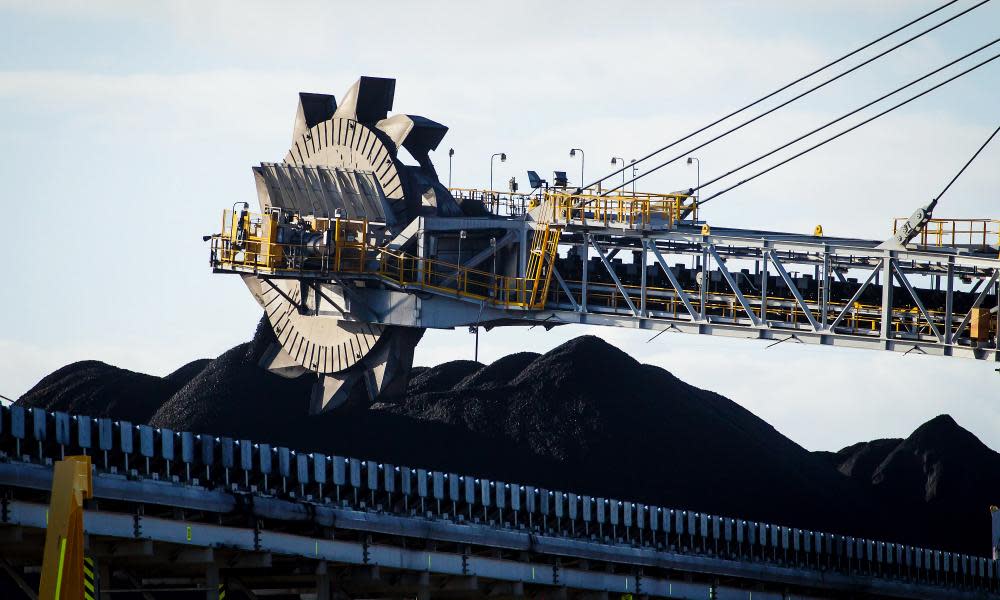Newcastle rising: soaring Jets restore football pride to a changing city

A typical Newcastle morning starts with a coffee on Merewether beach: out beyond the national surfing reserve, the sun rises on an ever-expanding queue of coal ships.
In 2011, about the time the city’s flagship sports teams began an unprecedented period of decline, Lonely Planet named Newcastle among its top 10 places in the world to visit. The guide, of course, mentioned the atmosphere inside Hunter Stadium. Like the daybreak walk to Merewether, it’s a Newcastle icon.
Over the past few decades, pub riots and local footy legends have gone out of fashion in Newcastle, replaced by a latte-led gentrification. The town that once made steel now serves toast with a vegemite smear.
The city’s art-deco skyline is being swamped by upmarket and modern development: now the only thing that outnumbers CBD coffee shops are the cranes.
But as the steel city loses some of its grit, so too have its football teams.
The Newcastle Knights haven’t won a competition for more than 15 years. The Newcastle Jets’ only success came a decade ago. Between them, they’ve claimed five of the last six wooden spoons.
The city’s lord mayor, Nuatali Nelmes, said both sides went through “a pretty dark time” as they transitioned back to being community-based clubs, having been owned for a short period by bankrupt former billionaire Nathan Tinkler.
Nelmes says Newcastle will always be “very much a working class city”, with its football teams at its heart.
“I think it’s a really exciting time to be a Novocastrian,” she said. “The feeling here is really good.”
On Friday night, the Jets will play for a place in the A-League grand final. Crowds have flocked back to Hunter Stadium as the side played with a hunger typical of the city’s most iconic sides.
Daniel Elkington stood on the hill at the old Newcastle Breakers in the pre-A-League days, and was in the stands during the 2008 grand final. He says success this year feels almost surreal.
“There’s definitely a buzz around the Jets at the moment,” Elkington said. “The last few years there hasn’t been too much to get excited about. It’s a good feeling to be winning games again.”
“A workmate of mine now comes in every day in a Jets shirt, but at the start of the year he didn’t even follow them.”
The Hunter was the country’s first football powerhouse. In 1884, a group of Scottish coalminers formed the region’s first football club, the Minmi Rangers, in a small town about 20km from the CBD. They were the first sporting side to demonstrate the Hunter’s dominance over opposition from Sydney and further afield.
The first ever goal scored for Australia in an international came from William “podge” Maunder, who played for the West Wallsend Bluebells, a neighbouring town with a similar history of coal mining.
Robert Skelton, a bush poet known as the Minmi Magster, has lived here for 50 years. He was driving through one day and saw a “for sale” sign on the local school. “Now they’ll have to carry me out in a box,” he said.
Skelton said passion for Newcastle’s rugby league and football teams runs as deep in these parts as it does in the city where “it’s all coffee shops there now”.
He said his granddaughter knows everything about the Knights; “she knows how many hairs are on the captain’s head”. He says both the Knights and Jets have huge family-based followings in the city’s suburbs and surrounding towns.
“There’s something great about working class people,” he said. “I’m really proud to live in this region.”
“They really do give people a lift,” he said.
Skelton talks about how much of the region has changed in recent years. Like most people, he can trace a lot of that change to the closure of “the BHP”, the city’s steelworks and largest employer, in 1997.
That was the same year the Knights won their first competition. People were hurting, even those who hadn’t lost work. Many did not know what would become of their hometown. Then Andrew Johns went down the blind side, Darren Albert went over, and somehow we all knew everything would be okay.
An exciting season for the Jets, and a home town semi-final, might still be some way short of those glory days of street parades with the Screaming Jets. But red and blue are back in fashion. And that’s a trend that everyone, from Merewether to Minmi, can get behind.

 Yahoo News
Yahoo News 
